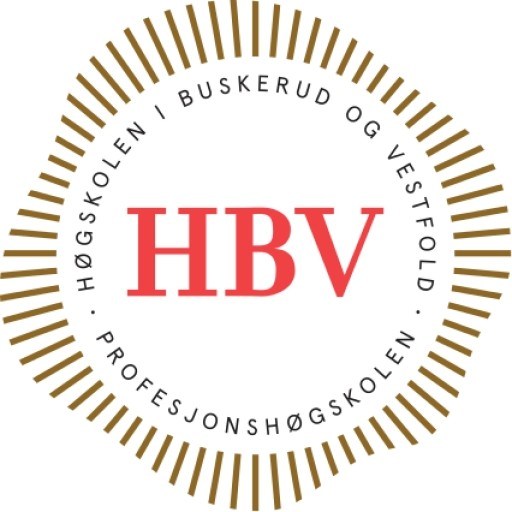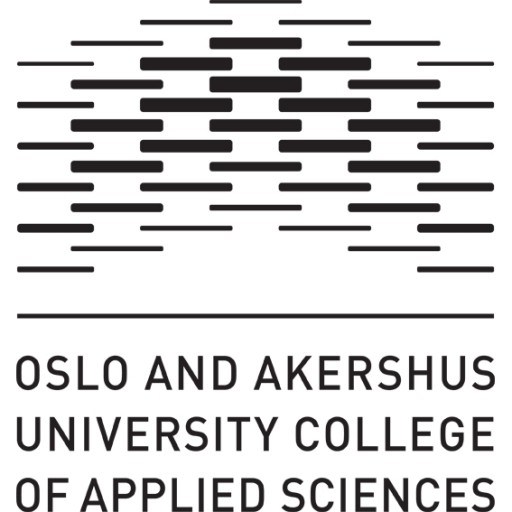Photos of university / #unioslo
Description: The Master's degree program in Informatics: Nanoelectronics and Robotics at the University of Oslo offers students a comprehensive education at the intersection of cutting-edge electronics, nanotechnology, and autonomous systems. This program is designed for students who are passionate about developing innovative solutions in the rapidly evolving fields of nanoelectronics and robotics, addressing complex technological challenges and contributing to advancements in automation, miniaturization, and smart technology. Throughout the program, students gain in-depth knowledge of electronic circuit design, nanoscale materials and devices, embedded systems, and robotic automation. The curriculum combines theoretical foundations with practical skills, enabling students to develop sophisticated nanoscale electronic components and autonomous robotic systems. Emphasizing interdisciplinary collaboration, the program prepares graduates for careers in research, industry, or entrepreneurship, where they can lead the development of next-generation electronic devices and robotic applications. The program also highlights the importance of sustainable development and ethical considerations in technology innovation, ensuring that graduates are equipped to make responsible contributions to society. With access to state-of-the-art laboratories and collaborations with leading research institutions and industry partners, students engage in active research projects, internships, and thesis work that address real-world problems. The program is suitable for students with backgrounds in physics, electronics, computer science, or related fields, and aims to develop their technical expertise, problem-solving abilities, and innovation skills. Graduates of this Master's program will be well-prepared to pursue careers in sectors such as semiconductor manufacturing, autonomous systems, medical devices, and advanced robotics. They will possess a robust understanding of nanoelectronic fabrication techniques, micro- and nanoscale device operation, as well as intelligent robotic control systems. The University of Oslo’s program emphasizes international perspectives and offers opportunities for mobility and collaboration within a global academic environment. With a strong focus on research-based education and innovation, the program equips students with the tools and knowledge necessary to advance the frontiers of nanoelectronics and robotics and to become leaders in these transformative fields.
The Master’s degree program in Informatics: Nanoelectronics and Robotics at the University of Oslo offers a comprehensive curriculum designed to prepare students for advanced careers in cutting-edge technological fields. This interdisciplinary program combines fundamental principles of computer science, electronics, and robotics with specialized knowledge in nanoelectronics and embedded systems. Students will engage in both theoretical studies and practical projects that emphasize innovation, problem-solving, and research skills relevant to the rapidly evolving landscape of nano-scale devices and robotic systems.
Throughout the program, students will explore core topics such as micro and nanoelectronic circuit design, nano-fabrication techniques, autonomous robotic systems, embedded software development, and artificial intelligence applications in robotics. Emphasis is placed on understanding how nanoscale components can be integrated into complex systems, improving performance and efficiency in various applications including healthcare, manufacturing, and environmental monitoring. The coursework is complemented by laboratory exercises, master’s projects, and opportunities for collaboration with industry partners, fostering a hands-on approach to learning.
The program aims to develop competencies in system modeling, simulation, and verification, as well as ethical considerations associated with emerging technologies. Students will learn to design, analyze, and implement innovative nanoelectronic devices and robotic solutions, preparing them for careers in research, development, and industry.
Graduates from this program will be well-equipped to contribute to advancements in nanoelectronics and robotics, working as researchers, engineers, or entrepreneurs. They will also have a solid foundation for pursuing doctoral studies in related fields. The University of Oslo’s strong ties to industry and research institutions provide students with valuable networking opportunities and access to state-of-the-art facilities, ensuring they are prepared for the challenges and opportunities of the future technological landscape.
Program requirements for the Master's degree in Informatics: Nanoelectronics and Robotics at the University of Oslo include a relevant Bachelor's degree in Informatics, Electronics, or a related field, typically requiring a minimum of 180 ECTS credits. Applicants must demonstrate proficiency in English, with acceptable test scores such as IELTS (an overall score of at least 6.5 with a minimum of 5.5 in each component) or TOEFL (minimum score of 80, internet-based test). Prior coursework should include fundamental subjects such as computer engineering, electronics, programming, and mathematics, including calculus, linear algebra, and physics, to ensure students have the foundational knowledge necessary for advanced studies. The program emphasizes interdisciplinary skills, so applicants with backgrounds in physics, electrical engineering, or computer science are also considered, provided they meet the core competencies. Relevant work experience in related fields can strengthen an application but does not replace formal academic prerequisites.
Additionally, the selection process considers academic grades, motivation, and potential for success in the program. There are no specific GRE requirements; however, some applicants may choose to submit scores if available. In some cases, supplementary documentation such as a CV, motivation letter, and recommendation letters are recommended to strengthen the application. The program is designed to be accessible for international students, with clear language and support services. No specific prerequisites are mandated beyond the general admission criteria, but familiarity with semiconductor technology, embedded systems, or robotic systems is advantageous. The overall aim of the admission requirements is to ensure applicants possess the necessary background in engineering and scientific principles to thrive in this interdisciplinary program focused on cutting-edge nanoelectronic and robotic technologies. The program duration is two years, and applicants are advised to review the specific entry requirements on the official university admissions webpage for the most current details and any updates to prerequisites.
The Finansiering av studiet ved University of Oslo for the Master's Programme in Informatics: Nanoelectronics and Robotics is primarily supported through a combination of government-funded tuition waivers, scholarships, and student loans available via the Norwegian State Educational Loan Fund (Lånekassen). As a Norwegian or EEA/EFTA student, you are generally entitled to full coverage of tuition fees, which are waived for domestic and most international students admitted to the programme. This significantly reduces the financial burden on students, making the programme accessible to talented students regardless of their financial background.
In addition to the tuition waiver, students are encouraged to apply for scholarships offered by the university or external organizations, which can provide financial support for living expenses, research activities, or conference participation. The University of Oslo periodically offers merit-based scholarships for international students, especially those demonstrating academic excellence or engaging in research projects aligned with the university’s strategic goals. These scholarships are competitive and usually cover a portion of living costs or research-related expenses.
Students from Norway or the European Union/European Economic Area have access to financial aid through Lånekassen, which provides loans and stipends to cover living expenses during their studies. Eligibility for these financial supports requires meeting specific criteria related to residency, prior education, and study progress. The amount awarded depends on various factors, including the student’s country of residence and the duration of study. International students from outside the EEA/EFTA area are generally responsible for covering their tuition fees unless they have obtained a scholarship or funding through other channels.
Work opportunities during the programme can also supplement students' income. The university allows students to work part-time, typically up to 20 hours per week during semesters, which can help offset living costs. Many students find employment in related technical fields, internships, or research assistant positions within the university, providing both financial support and practical experience relevant to their studies.
In summary, the financing of the Informatics: Nanoelectronics and Robotics programme relies heavily on tuition fee waivers for eligible students, scholarships, government-funded student loans, and part-time work. Prospective students are advised to explore scholarship applications early, familiarize themselves with Lånekassen’s funding options (if applicable), and plan their finances considering potential additional costs such as accommodation, transportation, and daily expenses. Given the comprehensive support system for students at the University of Oslo, many graduates complete their studies with manageable debt levels and valuable research experience, preparing them well for careers in academia or the technology industry.
Informatics: Nanoelectronics and Robotics at the University of Oslo offers a comprehensive education designed to prepare students for innovative roles in the rapidly evolving fields of nanoelectronics and robotics. The program emphasizes foundational knowledge in computer science, electronics, and engineering principles, combined with specialized coursework in nanoengineering, microfabrication, and robotic systems. Students will gain practical skills through laboratory work, project development, and collaborations with industry partners. The curriculum integrates theoretical understanding with hands-on experience in designing and implementing nanoscale electronic devices and autonomous robotic systems. Throughout the program, students are encouraged to develop problem-solving abilities, interdisciplinary thinking, and research competencies. The program also provides opportunities for international exchanges, internships, and participation in cutting-edge research projects. Graduates will be equipped for careers in advanced electronics manufacturing, robotics development, research and development roles, or pursue further academic studies. The university’s close ties with industry leaders and research institutions ensure that students have access to the latest technologies and industry insights, fostering a vibrant learning environment. The program aims to produce graduates who are not only technically skilled but also innovative and adaptable, ready to contribute to technological advancements and societal progress in the fields of nanoelectronics and robotics.





